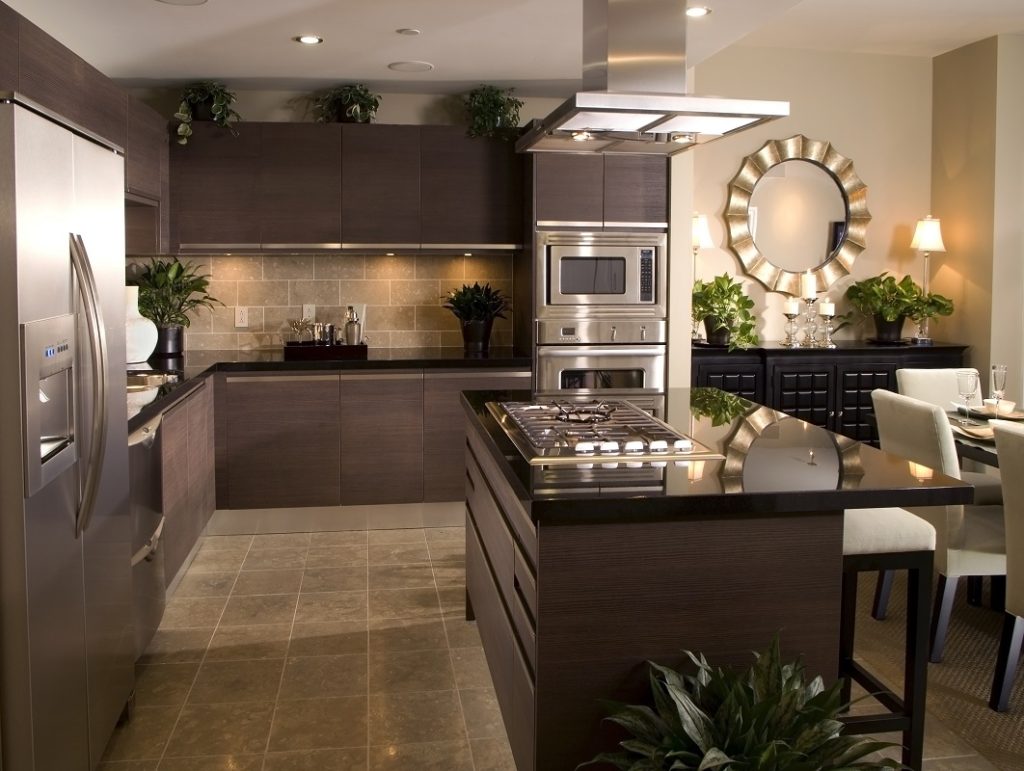- The average kitchen size in the U.K. is 13 square meters, smaller than the average U.S. kitchen.
- Poor layout, outdated/inefficient equipment, poor lighting, inadequate cleaning, and non-functional space can all contribute to kitchen inefficiencies.
- Cleaning ovens monthly can extend their lifespan and efficiency and reduce electricity bills.
- Rearranging cabinets with dividers or adjustable shelving helps maximize storage space and organize items.
- Replacing older appliances with energy-efficient models helps improve the kitchen’s look and reduce electricity bills.
The kitchen is the heart of every home. It’s where people prepare their daily meals, spend time with their family, and host guests. However, if your kitchen is not functioning efficiently, it can lead to frustration, wasted time, and even money. Here’s what you need to know about kitchens in the U.K., the reasons behind the inefficiencies of your kitchen, and how to improve it.
Kitchens in the U.K.
It’s estimated that the average size of a home kitchen in the U.K. is around 13 square meters. This is compared to the average U.S. kitchen, which is around 17 square meters, giving British homeowners limited space to work with. Every inch of countertop and cupboard space must be maximized to avoid clutter and disorganization.
Reasons Behind Kitchen Inefficiencies
There can be a variety of reasons why your is so inefficient. Here are some reasons why:
Poor and Inefficient Layout
One of the primary reasons for the inefficiency of your home kitchen is its poor and inefficient layout. Often, homeowners do not consider the triangle rule- the stove, sink, and refrigerator should be the core of the kitchen. Also, insufficient countertop space or storage can lead to clutter and decreased productivity as you may have to move around more to locate utensils, pots, and pans.
Lack of Proper and Modern Equipment and Tools

If you have outdated or incorrect equipment and tools, it can affect the functionality of your kitchen. For example, having dull knives may cause you to spend excess time preparing ingredients. Also, if your oven heats unevenly or is unreliable, it can lead to disastrous cooking outcomes, adding to the frustration and wasted food.
Poor Lighting
Insufficient or inadequate lighting in a kitchen can make it challenging to plan and prepare a meal. Areas such as the stove or the sink may be too dimly lit, leading to poor visibility and increasing the chances of accidents. Adding better lighting options, such as under-cabinet lights, can provide clearer vision quickly.
Inadequate Cleaning Regimen
A kitchen is a place that requires exceptional hygiene standards. Regular cleaning and upkeep of equipment and utensils and maintaining the space will help prevent contamination and the spread of germs. Leaving dirt and grime in the kitchen can affect food storage or cause pests such as rodents and insects.
Non-Functional Space Usage
If your kitchen is used for excess storing personal items instead of cooking, it might be necessary to declutter the space. Clutter can lead to stress and affect the kitchen’s ease of use, slowing the cooking process and making the kitchen less inviting. Keeping appliances in the pantry and keeping only items related to cooking close can free up ample space, making the kitchen more functional.
Improving Your Kitchen
There are various ways to improve your kitchen aside from dealing with the problems above. Here are some of them:
Clean Equipment Monthly

Certain equipment can get clogged up due to grease and food debris. This is common among ovens.
Ovens tend to show signs of wear and tear faster than other kitchen appliances. It can also use more electricity when dirty. Cleaning your oven monthly can help maintain its efficiency and extend its lifespan. If you don’t have the time to do this, consider hiring experienced oven cleaners to help you. These cleaners can efficiently eliminate all the grease and dirt to restore your oven’s efficiency.
Rearrange Your Cabinets
Adding dividers or adjustable shelving can help maximize space in your cabinets. This will prevent items from sliding around, making it easier to access them when needed. Rearranging drawers and pantries also helps keep things organized.
Update Kitchen Appliances
If your kitchen appliances are outdated, consider replacing them with energy-efficient models. Newer appliances use less energy and can help reduce your electricity bills. Updating the look of your kitchen will also make it more inviting, which helps keep you motivated while cooking.
A well-designed kitchen is essential to having an enjoyable cooking experience. Knowing why your kitchen is inefficient and taking steps towards making improvements can ensure that you have a functional and efficient space for preparing meals every day. Taking the time to optimize and update your kitchen can be beneficial and cost-effective in the long run.

